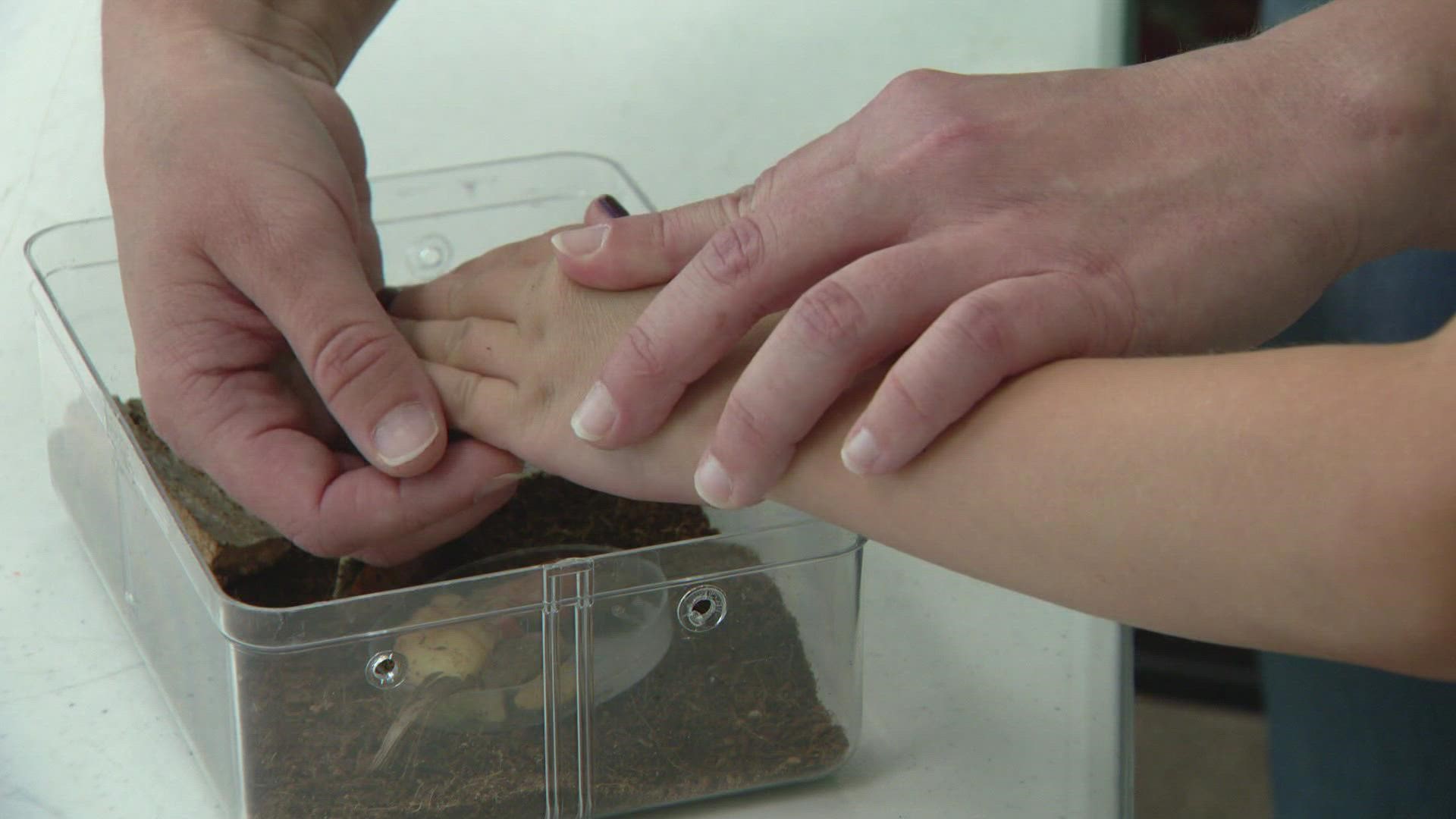WESTMINSTER, Colo. — The Butterfly Pavilion’s Summer Nature Camp aims to teach compassion and empathy for creatures most people don’t like seeing in their homes, invertebrates or animals lacking backbones.
The camps for K-5th grade students study animals like cockroaches, spiders and roly polies to make connections with animals that not many people see.
“Our mission is to foster appreciation for invertebrates and their endangered habitats around the world,” said Butterfly Pavilions community programs manager Brittany Oram. “Butterfly Pavilion Nature Camp is an opportunity for kiddos to get hands-on with animals that people find creepy crawly or they don’t like seeing at home.”

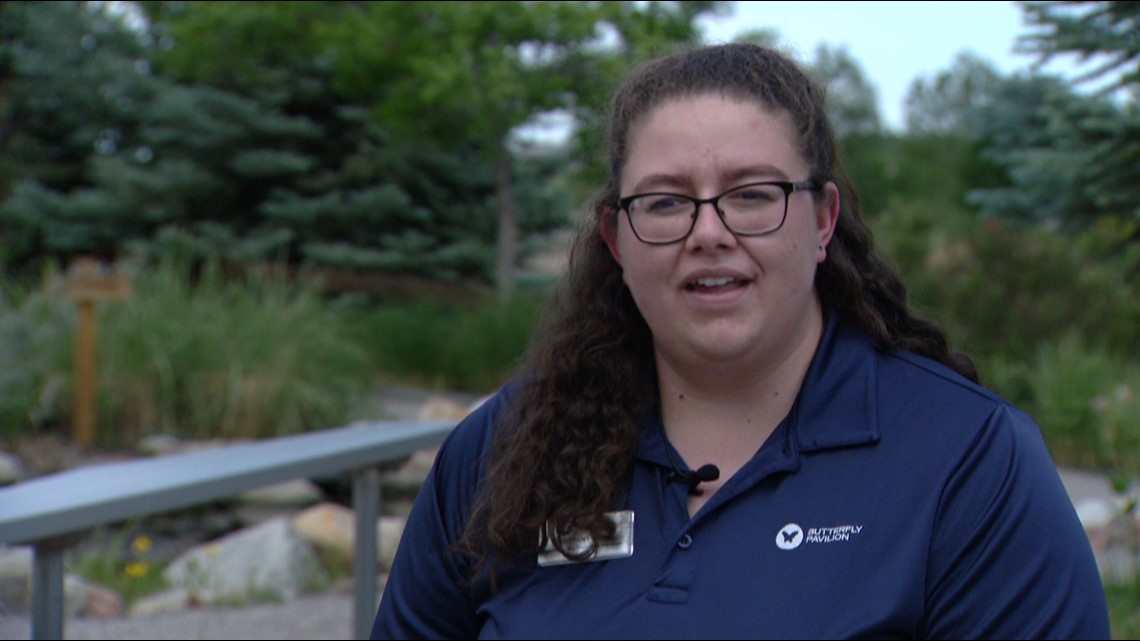
Oram said The Butterfly Pavilion, which is known for their conservatory which has between 1500 and 2000 butterflies at one time and is home to a wide variety of different invertebrates.
“97% of all animals that live on the planet are invertebrates,” Oram said. “Not a lot of people know about these animals and how many there are out there.”

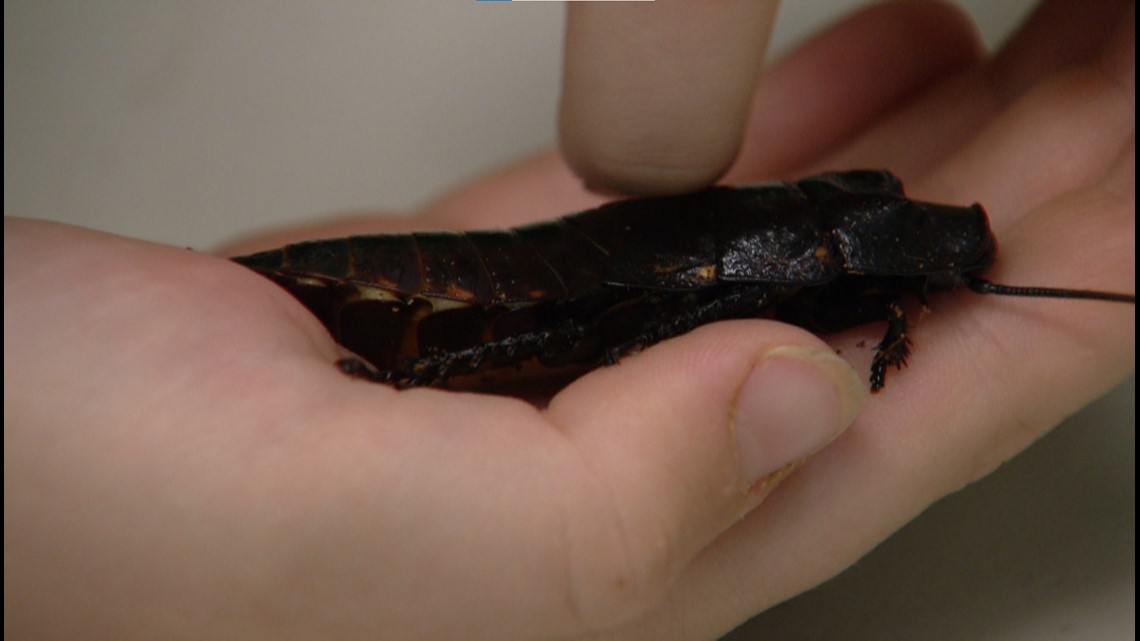
According to the National Wildlife Federation, there are more than 140,000 invertebrates in the United States—a number that is growing as researchers identify more and more species. Of the invertebrates in the U.S., approximately 200 are on the endangered species list.
Invertebrates can live on land—like insects, spiders, and worms—or in water like crustaceans (crabs and lobsters), mollusks (such as squids and clams), and coral.

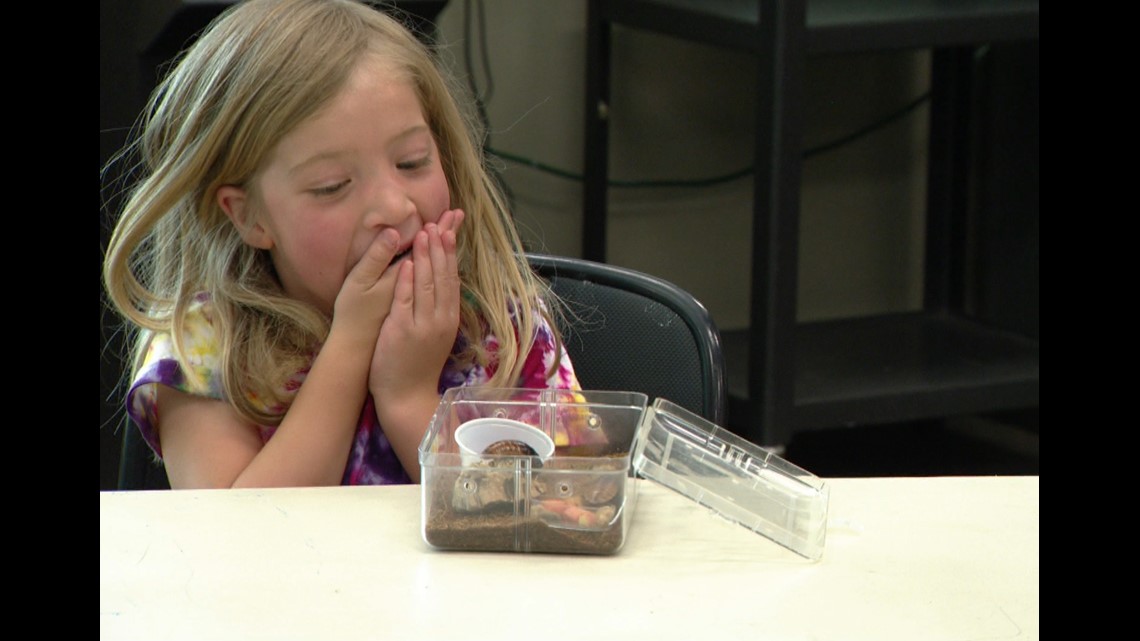
Oram said their goal is to get students to care about these creatures and see how they relate to our everyday lives.
“A pollinator like a bee or a butterfly actually takes care of 1 out of every 3 bites they take of your favorite food,” Oram said. “We teach (students) these things and so the next time they take a bite of their favorite food, they think ‘Oh, that was thanks to a bee or butterfly’ and they start making those connections and really start to care.”
Hannah Weiss is the Butterfly Pavilion’s Vice-President of Education and Community Engagement. She said invertebrates are the cornerstone of our eco-systems which is important to our continued survival.

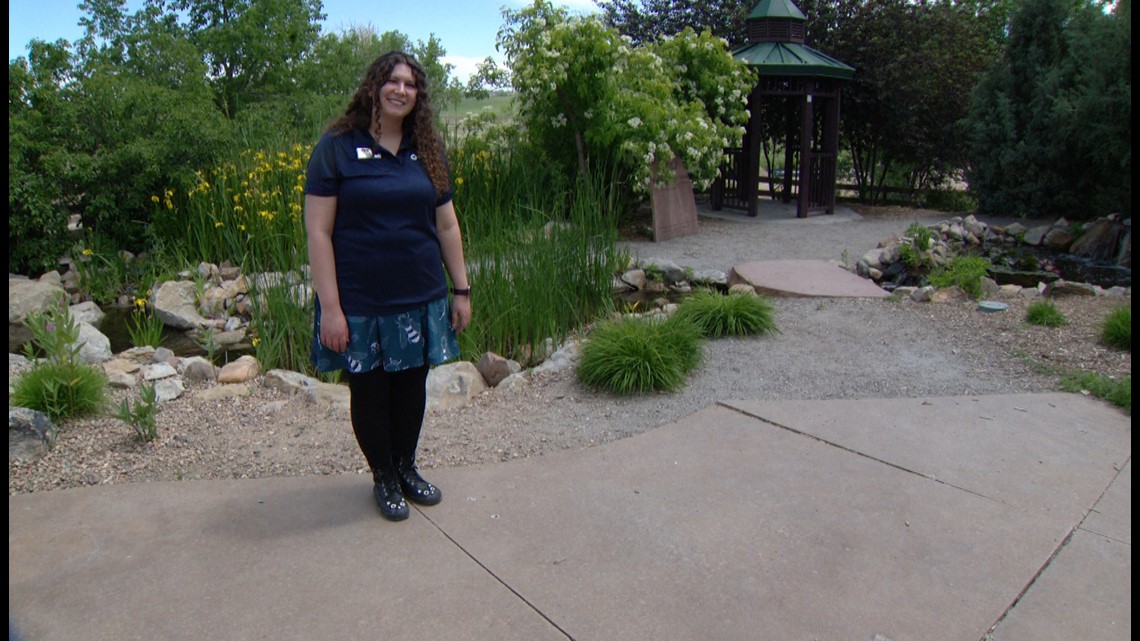
“Our education programs are really unique because we focus on a unique part of biology, education, and the environment,” Weiss said. “That’s not always the first thing you think of when you think of these subjects because we’re focusing on invertebrates.”

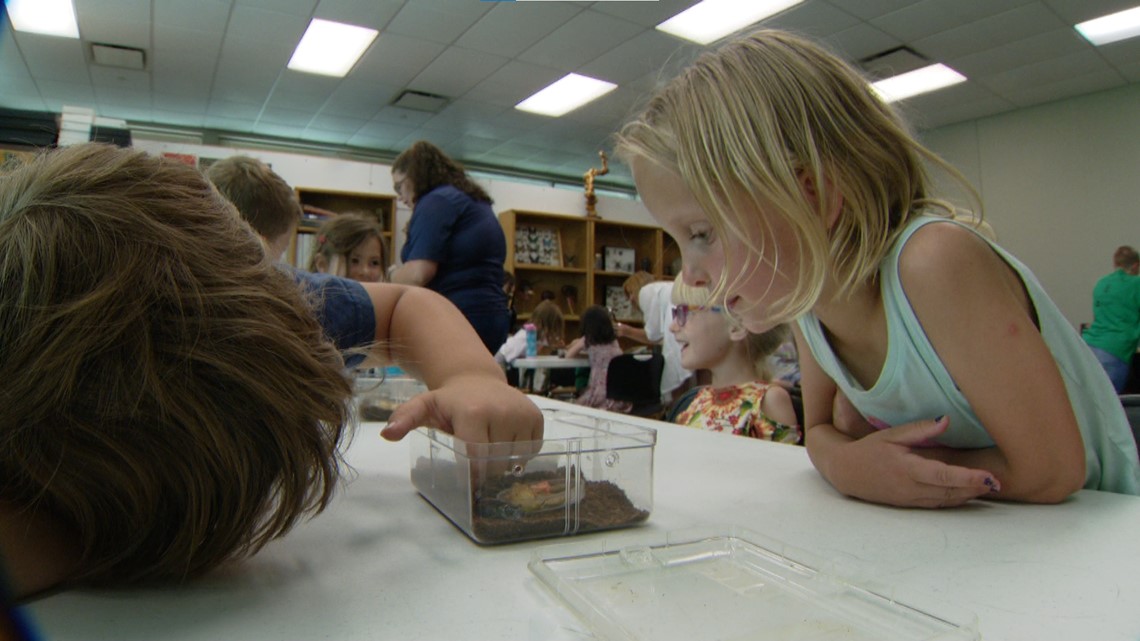
These nature educators hope the students will understand the necessity of making a connection with hundreds of insect species and ask more questions while enjoying their summer break.
More information about the Butterfly Pavilion Summer Nature Camps can be found on their website.
SUGGESTED VIDEOS: Latest from 9NEWS

